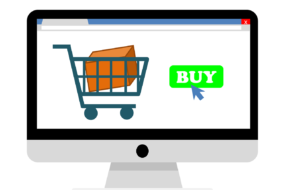
In the fast-paced world of e-commerce, staying ahead of the competition is essential. One technology that’s changing the game is blockchain. This revolutionary decentralized system is not only reshaping the way we transact but also offering innovative solutions to some of the most pressing issues in e-commerce. In this comprehensive blog, we’ll delve into the impact of blockchain on e-commerce, exploring the unique benefits, challenges, and future prospects.
Understanding Blockchain Technology
Blockchain is often associated with cryptocurrencies, but its potential goes beyond that. It’s a distributed ledger technology that records transactions across multiple computers, ensuring transparency, security, and immutability. The decentralized nature of blockchain eliminates the need for intermediaries, making it an ideal fit for e-commerce.
Enhanced Security for E-commerce
Security is paramount in online shopping, and blockchain addresses this concern head-on. It offers encrypted, decentralized data storage, reducing the risk of data breaches and fraud. Customers can shop with confidence, knowing their sensitive information is safeguarded.
Streamlining Supply Chain Management
Efficient supply chain management is crucial for e-commerce success. Blockchain provides end-to-end visibility, enabling businesses to track products from manufacturing to delivery. This transparency minimizes errors and ensures prompt order fulfillment.
Smart Contracts: Automating Transactions
Smart contracts are self-executing contracts with the terms directly written into code. They automate various aspects of e-commerce, such as order processing, payment, and delivery, reducing the need for manual intervention.
Decentralized Marketplaces
Blockchain facilitates the creation of decentralized marketplaces, where buyers and sellers can interact directly. This eliminates middlemen, reducing fees and providing a more cost-effective platform for businesses.
Customer Trust and Transparency
Blockchain’s transparent ledger fosters trust between e-commerce businesses and customers. They can verify the authenticity of products and the history of their purchases, which is especially valuable in the luxury goods and fashion industries.
Cross-Border Transactions Made Easy
E-commerce often involves international transactions. Blockchain simplifies these processes by eliminating the need for currency conversion and reducing the risk of fraud, making it easier for businesses to reach a global audience.
Challenges in Implementing Blockchain
While the potential benefits of blockchain in e-commerce are vast, there are challenges. The technology is still evolving, and businesses need to adapt to these changes. Integration can be complex and costly, and there are concerns about scalability and energy consumption.
Future Prospects: NFTs and Beyond
Non-fungible tokens (NFTs) are one of the exciting developments in the e-commerce blockchain space. They are digital assets representing ownership of unique items, and they have applications beyond art and collectibles, including in gaming, virtual real estate, and more.
Final Words
In the dynamic world of e-commerce, blockchain is more than a buzzword; it’s a transformative force. Its potential to enhance security, streamline supply chains, and create decentralized marketplaces is rewriting the rules of online business. As you navigate the e-commerce landscape, consider the innovative solutions blockchain offers to stay ahead of the curve.
Commonly Asked Questions
1. What is blockchain, and how does it benefit e-commerce?
Blockchain is a decentralized ledger technology that enhances e-commerce security, streamlines supply chain management, and enables automation through smart contracts.
2. Are there any drawbacks to implementing blockchain in e-commerce?
Challenges include integration complexities, scalability concerns, and energy consumption. Businesses must carefully plan and adapt to these challenges.
3. How does blockchain improve cross-border e-commerce transactions?
Blockchain eliminates the need for currency conversion, reduces fraud risks, and simplifies international transactions, making it easier for businesses to go global.
4. What are NFTs, and how do they relate to e-commerce?
Non-fungible tokens (NFTs) are unique digital assets that represent ownership of one-of-a-kind items. They have applications in various e-commerce sectors, including art, gaming, and virtual real estate.
5. Can blockchain truly build trust and transparency in e-commerce?
Yes, blockchain’s transparent ledger allows customers to verify the authenticity of products and their purchase history, which fosters trust and transparency in e-commerce.
Advertisement












